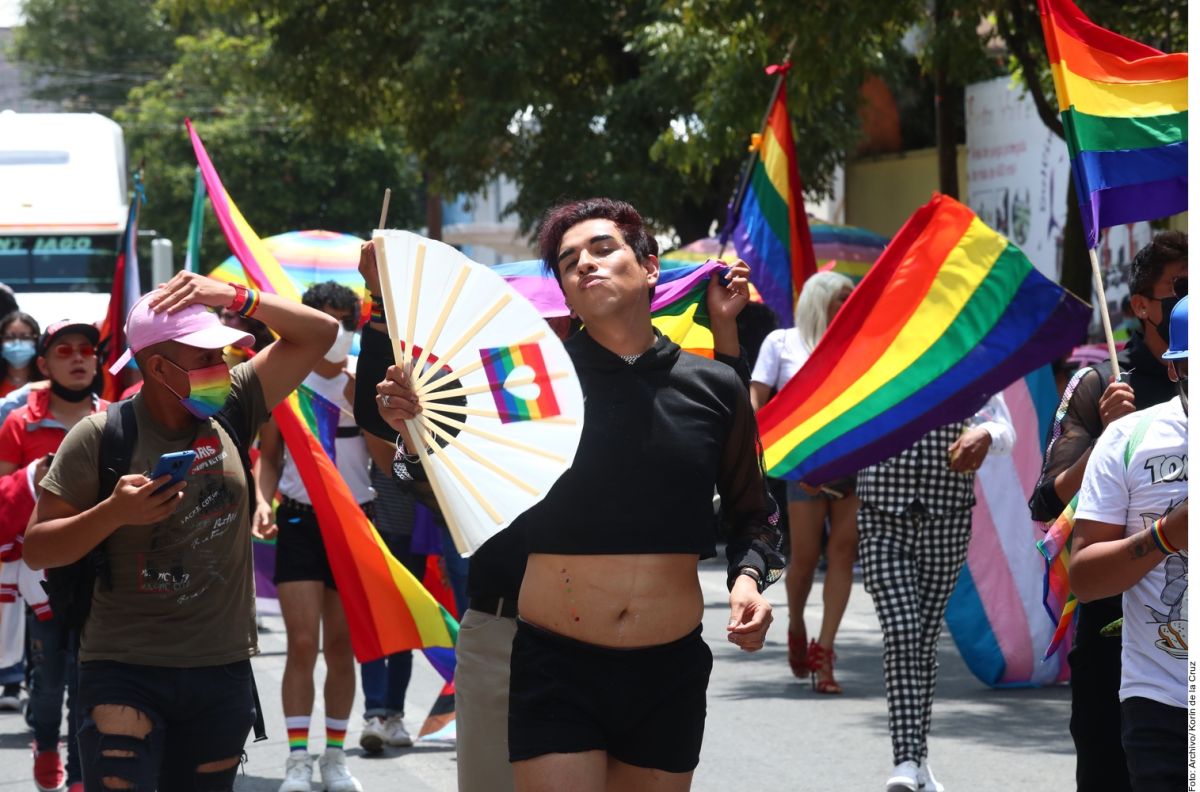MEXICO- Carmen was a woman in a man’s body. She was 23 years old when she decided to come out, and when she told her family no one accepted her, they turned their backs on her and ? They kicked her out of her house!
The father went further: he declared her dead in life. “Today I forget about you, you are no longer my son,” he concluded. “I hate the way you walk, I hate your gestures.”
Carmen started from scratch, without support and without a home, and decided to ask for help from a psychologist in the Mexican capital who supported her to vindicate herself.
Mexico City has been a spearhead in recognizing the rights of the gay and transsexual community through various laws. In particular, the government subsidizes, for example, sex change operations, their hormonal preparations and subsequent treatments and in 2020 it was the first entity to ban sexual conversion therapies before the current discussion in the federal congress.
It was not strange that Carmen received support from a specialized therapist like Luis Rivera. She convinced of her sexuality and not repentant as she would have been in the past; him, no doubt to support him.
For years, gay families and even themselves underwent therapeutic practices of ?sexual conversion?Rivero acknowledges. For this reason, some psychiatrists, psychotherapists or religious authorities and even priests practiced them to ?cure? or ?remove? the homosexuality.
International reports and studies endorsed by the United Nations Organization (UN) document that the practices of conversion. They include lobotomies, electro-shock therapies to the brain and other parts of the body, skin burns, isolation, shackling, beatings, starvation, and even exorcisms.
This type of activity generates physical injuries, but beyond that the negative imprint remains on an emotional and psychological level, they leave an affective wound when feeling the rejection and contempt from society, details Rivero, who has had to deal with parents who seek his support to straighten to his children.
Unfortunately, it is very common for parents to go to psychologists and therapists claiming that their children have a problem because they like children, says Rivero. I ask you to cure him, the parents clamor, and that is where the work of the experts comes in to teach that homosexuality is not a disease, nor does it have a cure.
Andrés’s father, a patient, even told him that his son was gay for fashion. Later it will pass, if he doesn’t let himself be influenced, if we keep him away from bad company because before the jotitos couldn’t hold hands, or kiss, now nobody says anything to them and that’s why they think they’re doing the right thing reproached.
The therapist Rivero highlights the importance of talking a lot with the family to give them information or push them to look for it because now there is a lot of information on the subject.
Thanks to her, he managed to make Andrés’ father understand that it is not that there are more homosexuals now, but that there is now an opening to express their sexual preferences and gender identification. “It is not the same to be homosexual in 2020 as it was in the 1990s,” she says.
Looking for legal tools
This type of practice, called Ecosig (Efforts to Correct Sexual Orientation and Gender Identity) or “conversion therapies” are becoming less frequent and are losing strength since they violate the human rights of the LGBTQ+ community.
Between 2020 and 2021, the entities that prohibited them were Mexico City, the State of Mexico, Tlaxcala, Colima, Zacatecas, Yucatán and Baja California Sur.
For this policy to become national, on October 11, the full Senate approved also prohibiting sexual reorientation therapies. With 69 votes in favor and two against, the green light was given to the opinion that prohibits carrying out, imparting, applying, forcing or financing this type of treatment or therapies.
In addition, it seeks to sanction any type of surgical or other services or practices with the aim of hindering, restricting, preventing, undermining, nullifying or suppressing the sexual orientation, gender identity or expression of a person.
Anyone who carries out, applies, forces or finances any type of treatment such as the Ecosig will be punished with prison, from two to six years, and a fine of 192,000 pesos (around 20,000 dollars).
The sanction would double when the behaviors are carried out against minors under 18 years of age, older adults or people with disabilities. They will also increase when the perpetrator has a domestic, work, medical or teaching relationship or any other that implies subordination with the victim.
The opinion was presented since 2018 by senators Citlalli Hernández, from Morena; Alejandra Lagunes Soto, from the PVEM, and Patricia Mercado from Movimiento Ciudadano. In 2019 the Justice Commission approved it and they kept it in the freezer.
It took two years for the legislation to be unlocked. Now it will be turned over to the Chamber of Deputies for discussion and voting.
The banning of these practices throughout the world has been a years-long struggle by the United Nations, considering that it is not only ineffective in changing gays to heterosexuality, but that it is ?extremely harmful? and leaves scars on people’s minds and bodies.
Various LGBTQ+ organizations denounce that in Mexico around four out of 10 members of that community survived conversion therapy, in addition to facing social rejection.
In the case of Carmen, now the most important thing for her was to rebuild her family. Coming out, she found people in the community and managed to create a support network that understood how he felt. She with her friends and she experienced her transition.
Her first bra was lent to her by other transgender women and when she looked in the mirror, she knew who she really was. Her family buried her alive, but she had relatives by choice.

